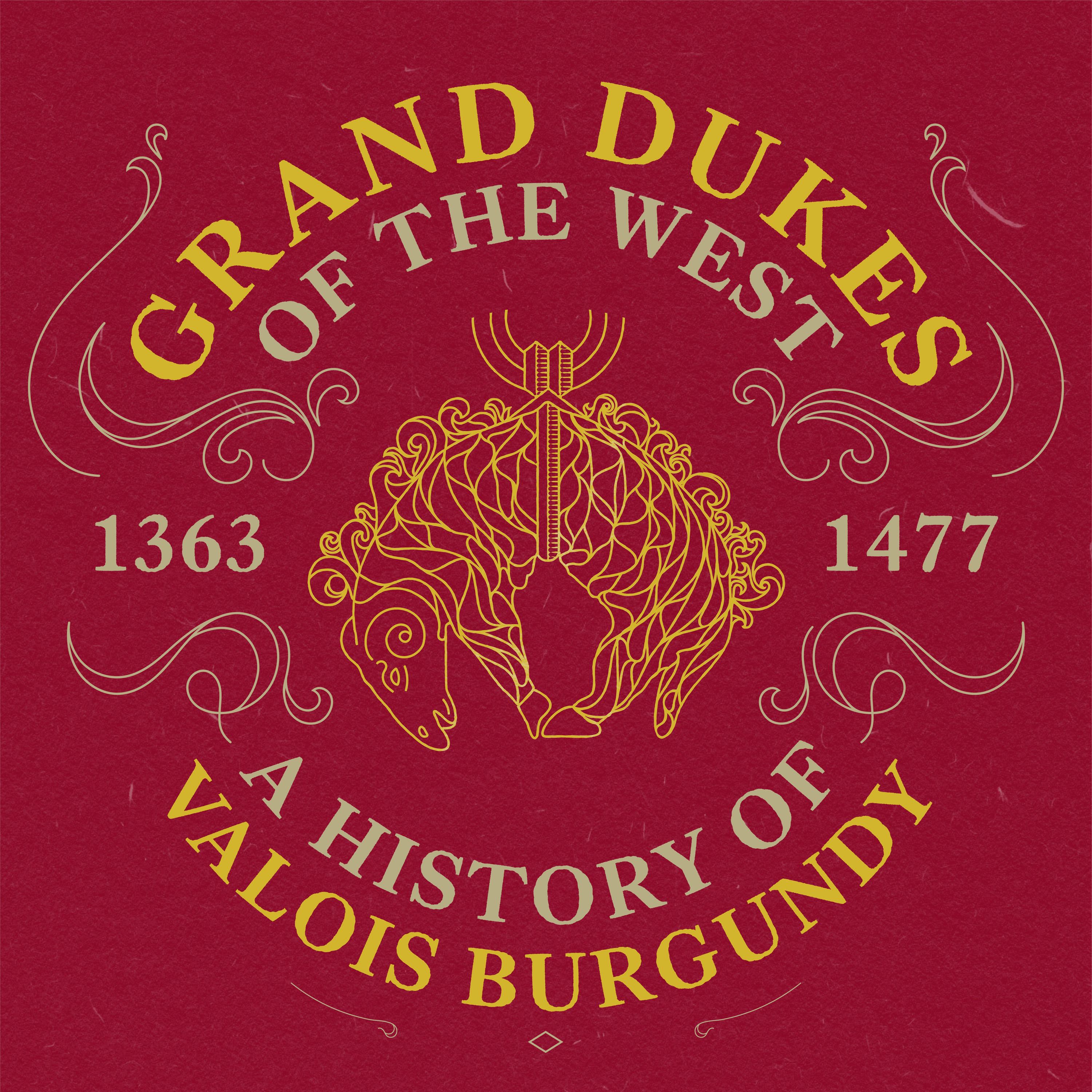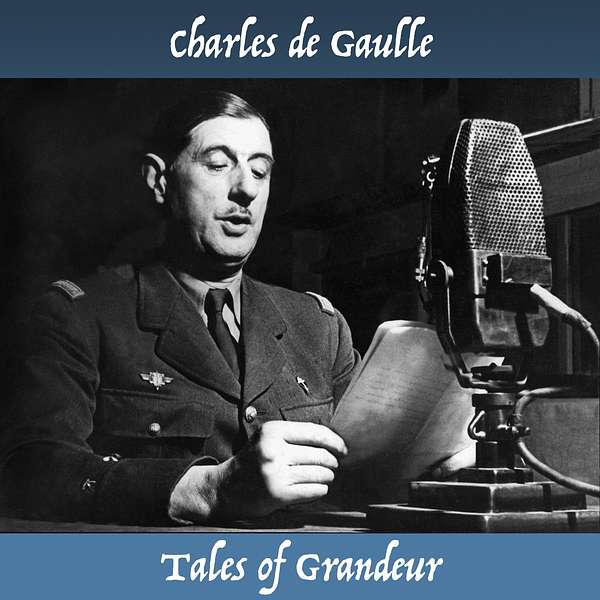
La Fayette, We Are Here!
La Fayette, We Are Here!
Charles de Gaulle, Tales of Grandeur
Charles de Gaulle, the famous general who led the French Resistance during the Second World war before becoming President and the father of the current French political system: the Fifth Republic.
De Gaulle is a very, very complicated man. You will often read in the same paragraph that he was ultra-conservative, but that he was a troublemaker and favoured change. If anything, de Gaulle proves that great leaders are rarely black or white, but often many shades of grey. I shall offer you here, an overview of his character and what he did. Hopefully, this will help you understand Le Grand Charles a bit better.
Timecodes:
Introduction
03:32- The Great Asparagus
08:10- The First World War
14:33- France's Collapse
19:50- The Leader of the Résistance
31:12- The Fall of the French Empire
36:06- De Gaulle President
45:10- May 1968 and the Fall of de Gaulle
47:54- Conclusion
Music: Marche pour la cérémonie des Turcs, composed by Jean-Baptiste Lully, arranged and performed by Jérôme Arfouche.
Art: Charles de Gaulle broadcasting from the BBC studios in London, June 1940
Reach out, support the show and give me feedback!
On June 18th, 1940, a general walks in the BBC studio in London. He has a speech to make. An unexpected speech, one written hastily, following a catastrophe in his homeland, France. At 2m tall, or 6 foot 6, he towers over everyone in the studio. He's never done anything like that before. He is very well read, a superb writer, but he's no politician, not yet. Only a few weeks earlier, he was still a colonel, leading tanks into battle.
He now faces an impossible situation. His country is crumbling. He doesn't know where his family is. He doesn't know who is still fighting, who is surrendering, who is dying. He takes a huge step into the unknown. He uses the only tool he still possess: his voice. At 10pm, London time, he begins. He states that France was defeated by German tanks, airplanes and tactics. But he invites his fellow Frenchmen and women to rally alongside him, stating, quote: "But has the last word been said? Must hope disappear? Is defeat final? No!". He concludes his speech with this sentence: "Whatever happens, the flame of the French resistance must not be extinguished and will not be extinguished." End quote.
That man, is Charles de Gaulle.
Welcome to "La Fayette, We are Here!", the French history podcast for the American public. I am your host, Emmanuel Dubois, and today we are talking about Charles de Gaulle, the famous general who led the French Resistance during the war before becoming President and the father of the current French political system, the Fifth Republic.
De Gaulle is a very, very complicated man. You will often read in the same paragraph that he was ultra-conservative, but that he was a troublemaker and favoured change. If anything, de Gaulle proves that great leaders are rarely black or white, but often many shades of grey. I shall offer you here, an overview of his character and what he did. Hopefully, this will help you understand Le Grand Charles a bit better.
The main constant in de Gaulle’s life is his firm belief of France’s special place in the world. In his War Diaries, de Gaulle wrote quote: “La France ne peut être la France sans la grandeur.” or “France cannot be France without greatness”, end quote. That very romantic view of his homeland will guide Charles his whole life. And it has its origins in de Gaulle’s childhood.
The Great Asparagus
Charles was born in Lille, northern France, on November 22nd 1890. This city is about 80km south of Dunkerque, and 115km west of Brussels. His parents, Henri and Jeanne, are both from the same region. They are actually first cousins, quite common among old families in Northern France. They aren't poor but are relatively modest. They will have five children in all, Charles being the third. They will spend most of their lives in Paris, although they remained very attached to Lille and their families there.
The de Gaulle are catholics, monarchists, very strict and traditionalists. From a very young age, Charles is told about France's greatness. Her history, her accomplishments. How the best a man can hope to achieve is to serve France in the most useful manner. His father, a teacher, provides his son with a very complete education, especially in literature. His mother, with whom he will remain very close all her life, was more involved politically and infused the young Charles with traditionalist and patriotic values.
At a very young age, Charles proves to be very smart, a quick learner and a hard worker. He's also very well read and and excellent writer. He is, however, very stiff, and doesn't have any charm. He impresses with his intellect and knowledge, not with his manners. He can be though, even brutal, although he's never described as cruel. In his teens, he has few career opportunities. The obvious choice for him is to join the army, to serve his country. He joins the Saint-Cyr military school in 1908 and starts training to become a French officer in the infantry.
His first posting arrives the year after, at Arras, about halfway between Lille and Paris. That is where he meets Colonel Philippe Pétain. This officer, also a man of the North, will have a tremendous impact on de Gaulle's life, as we shall see. Now a part of the 33rd infantry Regiment, de Gaulle impresses by his sheer intellectual capabilities. Pétain notices him because of that even though they don't have much time for literary discussions and intellectual exercises.
De Gaulle knows who France's enemy is at the time: Germany. The sole focus of the French army of the early Twentieth century is to prepare for the next war with the Germans who bested France in 1870-71 and took away Alsace-Moselle. All French soldiers and even citizen know this and de Gaulle, a patriot amongst the patriots, is keenly aware of that. His performance as a cadet officer is good but not stellar. He is noticed for his physical attributes. At almost 2m tall, he towers over his comrades. He is nicknamed "The Great Asparagus" because of his size, but he is well liked and respected by everyone. He graduates in 1912 with the ranks of second lieutenant.
As an officer under Philippe Pétain, de Gaulle learned many elements of leadership. Pétain, although approaching retirement at this time, was an extraordinary leader of men. He was intelligent, inspiring and energetic. De Gaulle later said that he owed a lot of his commanding and leading skills to Pétain. What both men didn't know in 1912-1913 is how soon this skills would be needed. In August 1914, war erupted in Europe and the German army attacked France with everything it had, hoping to knock her out of the war quickly. It failed.
The First World War
Charles is mobilized right at the start of the war. His brothers Xavier, Jacques and Pierre are also called. France had mandatory military service at the time, so even men who weren't military were called up right after the declaration of war. All four brothers will survive the war, but it will leave deep marks on them and on France.
Charles is extremely enthusiastic. That war is his chance to prove his worth to France. To him, there wouldn't be any greater honour than to die on the field of battle or to achieve some remarkable military feat. It shows in his correspondence with his mother, to whom he writes very regularly, where he demonstrates his great enthusiasm and his trust in his comrades.
However, he'll be quickly disappointed. Charles takes a bullet to the leg on August 15 1914 and has to be sent at the back to be treated. He rejoins the front after a long time in the hospital, only to be wounded again, this time at the head, in March 1915.
During his time at the front, de Gaulle shows initiative, leadership and remarkable personal courage, exposing himself regularly. His superiors even consider him reckless, some joke about him being such an unmissable target because of his size. Another trait started to appear in the young man, his unwillingness to accept defeat. France had to be the victor, at all cost. He agreed with Pétain's view that one must bring the maximum firepower he possibly can and concentrate it in an attack to break the enemy, rather than trying to have an equal strength all along the frontline. However, he didn't share his views that you'd have to be very prudent with your men's lives. De Gaulle believed that sacrificing oneself for France was always worth it. He certainly applied his own philosophy, risking his life multiple times, never panicking under heavy fire, even once being saved by the corpse of an officer who fell on top of him and absorbed a burst of bullets headed for him. But that stubbornness even recklessness will remain and inform de Gaulle's decisions and actions in the following years.
Charles is wounded another time at Douaumont, during the battle of Verdun, in March 1916. This time, he is made prisoner and sent to a POW camp in Germany. The French believe him dead and Pétain himself, now the most prominent French general, wrote an eulogy of the supposedly dead young officer. Despite his tentatives to escape, some of which some actually worked but Charles was recaptured, his role in the First World War was over.
After the war, de Gaulle participates in the French war effort in Poland in 1919-1920. He improves his military thinking, notably on the use of tanks. He remarks that quote: "the tanks must be used gathered and not dispersed", end quote. An advice that would not be heeded by the French strategists of the 1930's. At the same time, now aged thirty, Charles wants to settle down a bit and to have a family. He wrote to his father and an arranged marriage with a prominent northern family, the Vendroux, was quickly arranged. Luckily for everyone, this proved to be a good match.
Captain Charles met Yvonne Vendroux in 1920 in a organized date. She was the daughter of an industrialist and ten years younger than Charles. They quickly fall in love, Yvonne even declaring "It will be him, or no one". Like Charles, Yvonne is deeply catholic, traditionalist and very private. That is another trait that they have in common. Even when they become public figures, the couple will remain very secretive about their private lives, letting nobody in and almost never giving interviews. They marry in April 1921 in Calais and have their first child, Philippe, in December of the same year. They will also have two daughters, Elisabeth, born in 1924 and Anne, born in 1928.
Let me digress a bit about Anne. She was born with Down Syndrome as well as severe intellectual deficiency. She barely spoke and couldn't even feed herself properly. She needed constant care and the normal course of action for a well regarded family like the de Gaulle would have been to have her put in some institute. Charles and Yvonne never even considered doing that. They took care of their little girl and were extremely devoted. Charles was very undemonstrative by nature but he would be with her. He did everything he could to ensure her happiness and well-being, as did Yvonne. Charles de Gaulle might be faulted for many things, but I don't think his parenting can be put into question.
While his family grew, Charles continued his military career, again close to Philippe Pétain. He's admitted at the École de Guerre in 1922 and joins the personal staff of the now Marshal Pétain to help him write his book France and her army. Being under the wing of Pétain had huge advantages, nobody dared say "no" to the victor of Verdun, but it will eventually lead to resentment and even enmity.
France's Collapse
During the 1920's, Pétain made sure that de Gaulle's qualities were recognized even if the infantry captain was far from always obedient and respectful of his superiors at the École de Guerre. Under Pétain's leadership, de Gaulle started working on military strategy and philosophy. He will eventually publish two books to that effect, Le fil de l'épée in 1931, on the subject of leadership and moral, and Vers l'armée de métier in 1934, where he recommends the creation of autonomous tank divisions, rather than their use as infantry support. The titles can be translated as The Edge of the Sword and Towards a Professional Army respectively. Most of the French political class will ignore his writings, with the noticeable exception of Paul Reynaud. What is certain, is that the French military deciders didn't care for de Gaulle's views.
Pétain arranged for de Gaulle to join the secretariat général de la Défense nationale, or General secretariat of National Defence, where de Gaulle gets his first taste of politics. But the two men are at a crossroads. De Gaulle later claimed that he was already seeing signs of decline in Pétain, that the old soldier had run his course. Pétain was 75 at the time, so it is quite possible that he wasn't as sharp as he used to be and that de Gaulle noticed this. The two men had a small falling out. Pétain judged de Gaulle too ambitious for his own good and de Gaulle judged Pétain's views to be stubborn and outdated. By the late 1930's they barely have any relationship. In 1937, Charles is affected to the 507th regiment of combat tanks, as its colonel. That is the post he occupies when war is again declared against Germany, in September 1939.
I encourage you to listen to my previous episode on the Fall of France of 1940 to understand what went on during that fateful Spring. We will concentrate on de Gaulle's role here, but suffice to say that the French military deciders completely failed to understand the nature of the German military strategy and tactics and that France will be defeated remarkably quickly in May-June 1940 because of that. Colonel de Gaulle was one of the French officers who recognized the threat but weren't able to change the marshals and generals' collective minds.
During the great German offensive of May, colonel de Gaulle's was commanding the 4th armoured division, hastily formed but more or less consistent with his views of what an armoured division should be, although he completely lacked air support. Despite this, he counter attacks the Germans at Montcornet, trying to stop their advance west and to help the struggling French army and British Expeditionary Force. He fails to achieve much, besides surprising the Germans and slowing them down a bit, but his commanding and initiatives show that his military principles are sound. Concentrated armoured force, if manoeuvred well, can be a nuisance and even defeat the Germans.
De Gaulle tried again to mount counter-offensives against the Germans but could never gain enough support to defeat them. He attacks again at Abbeville on may 28th. He gets noticed by his superior and his given the rank of temporary brigadier general to better reflect his actual role. Following this, on June 5th, de Gaulle is admitted in the French government as under-secretary of National Defence. The prime, Paul Reynaud, had hopes that de Gaulle could help him turn the situation around or at least slow things down and asks him to better coordinate the war effort with Great Britain. Although de Gaulle understands better than most the reasons for the German success and what should have been done to prevent it, he wasn't a miracle worker and couldn't do anything more to stop the Wehrmacht.
On June 16th, Reynaud resigns from office and is replaced by Marshal Pétain, called back from retirement at 84 years old. De Gaulle, who was always flying back and forth between France and London, learns this the next day in Bordeaux and is flabbergasted. Having met Winston Churchill beforehand, understanding that France is collapsing and about to ask for an armistice, he gets on a plane and heads for London. He doesn't know it yet, but he has an appointment with destiny. He's about to make the most famous radio broadcast in European history.
The Leader of the Résistance
Once in London, de Gaulle manages to get Churchill’s support and is allowed to use the BBC’s studio to broadcast his appel, his appeal. His call for the French not to despair, but to resist. Not to surrender, but to keep fighting. Not to hide, but to come join him in England to regroup and strike back.
Let me read you his appeal. It’s quite short, but striking, prescient in some ways and speaks volumes about de Gaulle’s aims and personality. Here goes, quote :
“The leaders who, for many years, were at the head of French armies, have formed a government. This government, alleging our armies to be undone, agreed with the enemy to stop fighting. Of course, we were subdued by the mechanical, ground and air forces of the enemy. Infinitely more than their number, it was the tanks, the airplanes, the tactics of the Germans which made us retreat. It was the tanks, the airplanes, the tactics of the Germans that surprised our leaders to the point to bring them there where they are today.
But has the last word been said? Must hope disappear? Is defeat final? No!
Believe me, I speak to you with full knowledge of the facts and tell you that nothing is lost for France. The same means that overcame us can bring us to a day of victory. For France is not alone! She is not alone! She is not alone! She has a vast Empire behind her. She can align with the British Empire that holds the sea and continues the fight. She can, like England, use without limit the immense industry of United States.
This war is not limited to the unfortunate territory of our country. This war is not finished by the battle of France. This war is a world wide war. All the faults, all the delays, all the suffering, do not prevent there to be, in the world, all the necessary means to one day crush our enemies. Vanquished today by mechanical force, we will be able to overcome in the future by a superior mechanical force.
The destiny of the world is here. I, General de Gaulle, currently in London, invite the officers and the French soldiers who are located in British territory or who would come there, with their weapons or without their weapons, I invite the engineers and the special workers of armament industries who are located in British territory or who would come there, to put themselves in contact with me.
Whatever happens, the flame of the French resistance must not be extinguished and will not be extinguished.” End quote.
De Gaulle understands the true scale of the war. He understands the role of the United States. He already sees a way for France, defeated and humiliated, to get back on her feet and to restore her status and sovereignty. But the road will be long and difficult. There will be many, many issues, and some of them won’t come from the Germans. Over the next few years, de Gaulle will be almost at odds with Churchill, Roosevelt and other French leaders as with the Germans!
What amazes me also is that he does all of this without having any clue where is family is. Luckily, Yvonne is very resourceful. She manages to flee the German advance and to reach Brittany with their children. From there, she gets on a boat headed for England. When she gets there, she learns about her husband's speech on the radio. When Yvonne finally manages to reach Charles by phone, he answers and says quote "Ah, its you. Come and join me in London", end quote. As I said before, these are very private, non-demonstrative people, even towards those they cherish. Their son, Philippe, joins the newly established "Free French Naval Forces" right away. Yvonne stays with her husband, taking care of Anne and Elisabeth.
De Gaulle establishes the Free French Forces in July 1940, following France's rendition in late June. The new Vichy government, headed by Philippe Pétain, de Gaulle's old mentor, declares him a traitor and sentences him to death in absentia in August. De Gaulle struggles immensely, as only a limited number of French people rally to his cause at the beginning. He lacks credibility and support. Nobody in France knows him. When the French people hear about him, they think that “de Gaulle” is a nickname. A French general named “Gaul”, they can’t be right! Furthermore, The attack on the French fleet at Mers el-Ketir, Algeria, in July by the Royal Navy doesn't help his cause. The British were so afraid that the Germans would seize the French fleet and use it against them that they opened fire, destroying many vessels and killing 1,300 French sailors. It's a disaster for de Gaulle, as he is associated with the British. Many French view him as a coward and a traitor, even outside the Vichy government.
A couple months later, he tries with the Royal Navy to persuade the French forces at Dakar, in Senegal, to rally to his cause. It's also a failure, with the local French forces refusing to join and another battle ensues. De Gaulle understands how tough it's going to be. He lacks men, means and legitimacy. However, the politics of the Vichy government in France, their open collaboration with the Nazis, the crimes committed agains the French population, all these will help the Resistance movement. Over the next couple of years, more and more French people will rally de Gaulle, seeing him as the path to freedom and honour.
De Gaulle adopts a rather peculiar strategy to defend his position. He has no say in military events and almost no way of really helping the Ally cause until 1942. The French Résistants provide useful information, but it will really come to bear in 1944, for the invasion of France. But the French general wants to avoid something at all costs: for France to be treated as a second-rate power.
After the German invasion of the USSR in June 1941 and Pearl Harbour in December, the war is, as de Gaulle had predicted, a World War. How important are the Free French forces in the grand scheme of things, compared to these behemoths that are the USA and the Soviet Union? In truth, not much. And de Gaulle knows it. He therefore decides to act as if he were the equal of Churchill, Roosevelt and Stalin. He behaves, talks and demands as if they were equal in power. In his mind, and in his attitude, he is France. So he only has a few thousand men under his orders, and they entirely depend on Britain and the US for their armaments and other supplies. What of it? They all are France, and France, to them, is greater than any army, any political power. De Gaulle is playing the long game, he knows the Allies will eventually win the war, he's persuaded of it from 1941 onwards. So he works for France to be included as one of the victors, not one of the losers.
He organizes the Résistance from London, with the help of Jean Moulin, that prefect who centralized the several resistance movements into one called the Conseil national de la Résistance in 1943. Roosevelt really dislikes the presumptuous de Gaulle and sees him as a possible future dictator. He favours Henri Giraud, leader of the Armée d'Afrique after the Allied invasion of North Africa in late 1942. They force de Gaulle to work with him, but the patient and more politically aware de Gaulle will oust him over the next few months. De Gaulle is now at the head of the Comité français de libération nationale, or French National Liberation Committee. He works relentlessly towards his objective: for the French to free France themselves as much as possible. He fears that the British and the Americans, the anglo-saxons in de Gaulle's words, will impose their will and make France a vassal State if the French do not take part in the Liberation. From what I've read, he's right in that assumption. At this point, British and American leaders had a lot of contempt for the French. But that 2m asparagus stood in their way, with an incredible confidence and steadfastness.
June 6th 1944, the Allies invade France. Then they advance towards the prize: Paris. The Résistance and de Gaulle organize a massive uprising in late August, and the City of Lights is liberated by the French troops of the 2nd armoured division of general Leclerc. De Gaulle enters the city the same day and qualifies Vichy as a simple "parenthesis". He makes a speech in which he famously says quote: "Paris outragé ! Paris brisé !... mais Paris libéré !", or "Paris outraged! Paris broken!... but Paris liberated!".
He is already hard at work to preserve France's place in the world. By taking the helm of the French forces and by taking part in the final onslaught on Germany with the Allies, he makes sure France is one of the victors in 1945. Remarkably, he succeeds. France is counted as a victor and even manages to be one of the five permanent members at the UN security council. De Gaulle has succeeded, but he now faces a nastier, more ferocious enemy: French politics.
The Fall of the French Empire
By 1947, de Gaulle has founded his political party but he is ousted of French politics. More experienced political figures manage to make the newly established Fourth Republic work in their advantage and basically tell de Gaulle: "thank you for your service, now go back home in Colombey". De Gaulle criticizes the newly formed French Republic. It is very similar to the Third Republic, it's a parliamentary system and is very prone to weak governments and continuous elections. He favours a stronger executive branch, a change of paradigm. A sort of Republican Monarchy, where the president, the elected sovereign, would wield much more power. But as I said, he fails and has to leave the political scene. From 1948 onwards, the name of de Gaulle is associated with French resurgence, but as a memory, nothing more.
It's also in 1948 that his daughter Anne dies. She died of pneumonia in her father's arms. Charles and Yvonne were deeply affected by her death but sought to help other parents in their situation. Back in 1945, they had created the "Anne-de-Gaulle Foundation", to harbour and help young women who were quote "without resources, benefiting from the help of public assistance and preferably from families affected by the war." This foundation still exists and it provides shelter and help for handicapped persons.
Over the next decade, the French government will work to rebuild France, completely devastated by the war. They will achieve much, taking great advantage of the Marshall plan and using it very intelligently to restart the French economy and making it a strong economic power in a very short amount of time. However, they face a new challenge: decolonization. The movement had started before the war, but it is now gaining speed. The first major war happens in Indochina, what is now Vietnam, Cambodia and Laos. The French occupied these territories since the nineteen century, but the locals had enough. After years of terrible fightings, the French leave Indochina in 1954, following their final defeat at Dien Bien Phu. The Americans will soon take their place, to oppose the communist North Vietnam, and we all know how that went...
But it's another war that will have repercussion for our story today: Algeria. Algeria had been a French colony since 1830, but it became special, it became part of France itself. In 1847, it was divided in départements and was considered French soil, indivisible from the métropole. For many French in the 1950's, the very idea of Algeria becoming independent is as ludicrous as Brittany or Provence gaining independence. By 1956, over a million people of French origin live in Algeria, these are the Pieds Noirs, the Black Feet. Many have been there for generations and considered it their land, as well as a part of France. But the Algerian Front de libération nationale, or National Liberation Front, has other ideas. Its members want to get rid of the French entirely, and it's not surprising. The Algerian Muslims, the vast majority of the population, are treated as second-rate citizens by the French. Their important role during the war is largely ignored by the French army and the French people. The Algeria War is a terrible, terrible affair, with massacres, destruction and a refusal of the French authority to see things as they are.
The governments of the Fourth Republic succeed one another at an alarming rate. The French people are divided on what to do with Algeria, some feel that a civil war is looming. Following manifestations, de Gaulle is recalled by the French authorities on June 1st 1958. He's made président du conseil, the head of government with a clear mandate: to solve the French political crisis and the Algerian war. He'll do both, albeit not as initially intended.
De Gaulle President
At this stage, de Gaulle wants to maintain the French empire has much as he can. I think that in the late 50's, he still shares the view that Algeria should be part of France. During the war, he took part in the mistreatment and belittling of French colonial troops, making sure that white French officers were in control. He was not nicer or more understanding, he only thought of French power and prestige. So when he goes to Algiers on June 4th 1958 and proclaims "Je vous ai compris" or "I understood you" to the French settlers, he is sincere. He believes that he understands the situation of the French settlers and that he can find a way to make it work. But very quickly, he'll change his mind.
Back in Paris, he works readily on a new constitution, one for a new republic, the Fifth, following an overwhelmingly positive referendum on the matter. It is established on October 4th 1958. It is as de Gaulle wanted it, a lot less parliamentary and has a stronger executive branch. Its president has way more power, but is directly elected by the population, not through the Senate or the National Assembly. Although for the very first election, an electoral college is formed and de Gaulle is elected on December 21st 1958. It's a remarkable comeback. France is still under that republic, so de Gaulle's mark on the country's political course cannot be understated.
Now in charge, de Gaulle has to deal with Algeria. He quickly realizes that the situation is untenable and that making the war last would only be detrimental for France. That's where another key element of his character shows: he adapts. He therefore starts working towards Algerian self-determination in 1959 for its eventual independence in 1962. Many pieds noirs and soldiers live that as a betrayal. There is even an attempted putsch by French generals in Algier on April 21st 1961. De Gaulle and his wife are even the victims of an assassination attempt in August 1962, known as the attentat du Petit-Clamart. It was organized by a French far-right terrorist group known as the Organisation de l'armée secrète, or Secret Armed Organisation, who had try to keep Algeria French. They had failed, as Algeria became independent in March 1962. They also failed to kill de Gaulle who emerged unscathed, as well as his wife and their son in law. Charles and Yvonne remained calm, as ever, Charles was even heard saying to his wife "you are brave, Yvonne".
As I mentioned, de Gaulle adapts easily. During the Second World War, he worked with French communists in the Résistance and was willing to make them a part of the French government after the war. He also didn't fear the Soviet Union like the Americans or the British did. Even though he's an old-school military guy, one with a strong catholic upbringing and marriage, he often do not follow the classic conservative way. He works towards what he believes to be the superior cause: France. As often with great leaders, his interests and those of his country will come to be very intertwined, but we'll get back to that later.
During and after the Algerian war, De Gaulle faces another major challenge: to ensure France's recognition as an important power on the international scene. He knows that force is the only language truly understood everywhere and therefore aims to make France a nuclear power. The program was initiated before he became president, but he accelerated it and gave it a clearer purpose. In 1960, France detonates its first nuclear bomb, in Algeria of all places. By 1968, it will also have hydrogen bombs. That makes France a key actor in Europe where the two ideological blocs face each other. It also makes her relatively independent from the United States to defence herself, which is not welcomed in Washington. The Americans had a very strong belief that they led the West, without any question. But as in London in 1940, de Gaulle just didn't care about the huge discrepancy in military means. He did his best to reinforce France's army and power and then acted as if he belonged to the table of the great powers. And again, it worked.
De Gaulle and his government enjoy a great economic prosperity in the 1960's. France's industries are growing, there is full-employment, the Algerian crisis is solved and the other African countries are becoming independent without new wars. In Europe, de Gaulle is reluctant to the idea that Nation States like France should give up too much of their sovereignty in favour of European and worldwide cooperation. That is why, for example, he opposes the entry of Great Britain in the European community, saying that it'd be a Trojan horse for American interests. De Gaulle still sees the British and the Americans as these Anglo-Saxons that want to take advantage of France and Europe, and he opposes them strongly.
De Gaulle is not easily impressed. When John and Jackie Kennedy visit France in 1961, de Gaulle basically ignores the American president in favour of his wife. Jackie speaks French, and de Gaulle enjoys chatting with her about cinema or literature. Old Jack can wait in the lobby. Kennedy is furious of being snubbed like this, but de Gaulle knows exactly what he's doing. The message is simple: you might be the leader of the free world, the president of the most powerful nation on Earth, but when you are in France, you obey my rules. I won't bow before you, I won't be your servant. You have to treat me as an equal.
France's allies had a hard time with de Gaulle's attitude, especially America. De Gaulle completely disagrees with America's foreign policy in the 1960's. He takes France out of NATO's integrated command in 1966, denounces American intervention in Vietnam, and tours the world's smaller nations, inviting them to take their place on the international scene. He goes to South America, Poland, Romania, and other countries, always with the same message: protect your national interests, affirm yourselves. When he comes to Montreal, Québec, in 1967, he famously proclaims "Vive Montréal ! Vive le Québec ! Vive le Québec... libre ! Vive le Canada français ! Et vive la France !" Or in English "Long live Montreal! Long live Quebec! Long live Quebec... free! Long live French Canada! And long live France!". The Quebec separatists see that as French support for their cause. Pierre Elliot Trudeau is absolutely furious. But again, de Gaulle snubs him by saying quote ""We have not one concession, nor even any courtesy, to extend to Mr. Trudeau, who is the adversary of the 'French fact' in Canada.", end quote.De Gaulle's is perfectly coherent in his message. Even if you are alone, even if you have nothing, stand your ground, take your space. It's the only way to be heard. But the old Charles will soon face a problem: people listened to him.
May 1968 and the Fall of de Gaulle
France and Europe in the late 60's is experiencing huge changes. Her population is better educated than ever, with more and more young men and women attending university, getting degrees and, henceforth, starting to criticize their society. France is getting rich, very rich, but the students and the workers feel that this new riches are not distributed equally in the country. They write pamphlets, they talk on the radio, they start protesting. Then, in May 1968, France explodes. The country is paralyzed by major strikes all over the place and by huge riots in Paris. De Gaulle, even though he'd been reelected in 1965 with a conformable margin, is seen as a figure from the past, insensible to the needs and demands of the average French citizen. Following a falling out in the negotiations, Charles and Yvonne disappear for a day, on May 29th. Nobody knows where the president is, some fear an assassination or a kidnapping. But no, de Gaulle is in Baden-Baden, the French military base in Germany. He needed to take a step back to address the situation.
He comes back and dissolves the National Assembly, forcing legislative elections. His party wins them, but the love story between France and her president is definitely at an end. The younger generation want to go past de Gaulle. He knows it and, I think, decides to test the country's resolve. In 1969, he has a referendum organized on a restructuration of French regions and of the Senate. He announces that he would resign should the referendum fails. The French people reject the proposition by 52,41% of the vote. De Gaulle announces shortly after quote "I cease to exercise my duties as President of the Republic. This decision takes effect today at noon". He leaves the Élysée Palace and heads back to his home at Colombey-les-deux-Églises. He will spend the next year there, before suffering a fatal aneurysm on November 9th, 1970. The Great Charles, was no more.
Conclusion
What to make of de Gaulle. Was he a hero who saved France in 1940? A military dictator who took advantage of a national crisis to take power in 1958? A disconnected old man who was forced out by his own people in 1969? A loving father and husband? He was all of that to a certain degree. He wrote in his Memoirs that, quote "All my life, I got a certain idea of France. Feeling inspires me as well as reason." End quote. De Gaulle had a very romantic view of his homeland. He saw France as a unique place in the world. Her culture, integrity and power as something worth fighting for. Something above his own stature or prestige. That's not to say that he wasn't ambitious, he certainly was, but I think that he believed his ambition to be France's ambition. In the late 60's, he clearly had trouble to make the distinction between his desires and what the French people actually wanted. When he finally realized it, he simply left. Some politicians should learn that lesson.
De Gaulle had been the leader of the French Resistance, the Man of the 18 of June as we call him. That radio broadcast and his struggle during the war had an immense impact on France's future and fortunes. I believe it cannot be understated, especially given the lack of means at de Gaulle's disposal. He basically bluffed everyone. By saying that he was important, that France was important, he created that importance and made bigger players accept it. A remarkable tour de force if you ask me. He had the same attitude as president on the international scene after 1958.
His handling of the Algerian War remains a very hot topic however. Some French still see him as a traitor who promised to defend French interests abroad only to give them away at the first occasion. Others see him as a pragmatic man who recognized that the war was lost and that negotiating Algerian independence was better than fighting over it. I fall in that camp. De Gaulle was no idiot and no ideologue. He wasn't a saint and could certainly be ruthless, but he wasn't stupid.
Finally, by 1969, I simply think that he had run his course as president. He'd been there for over a decade and was heavily denounced by the younger part of the French population in 1968. He accepted this and retired. He left France with a new political system, which she still has, a regained recognizance as a major power in the world, and many friends amongst the lesser powers everywhere. He was hated by the Americans but I also think that they were impressed by him. Charles de Gaulle was definitely a peculiar leader, one that historian Charles Williams considers "The Last Great Frenchman". The great asparagus, the grand Charles was a man who you could say "no" to. But he'd answer you "Je m'en fiche", "I don't care". Thank you for listening, au revoir.
Podcasts we love
Check out these other fine podcasts recommended by us, not an algorithm.
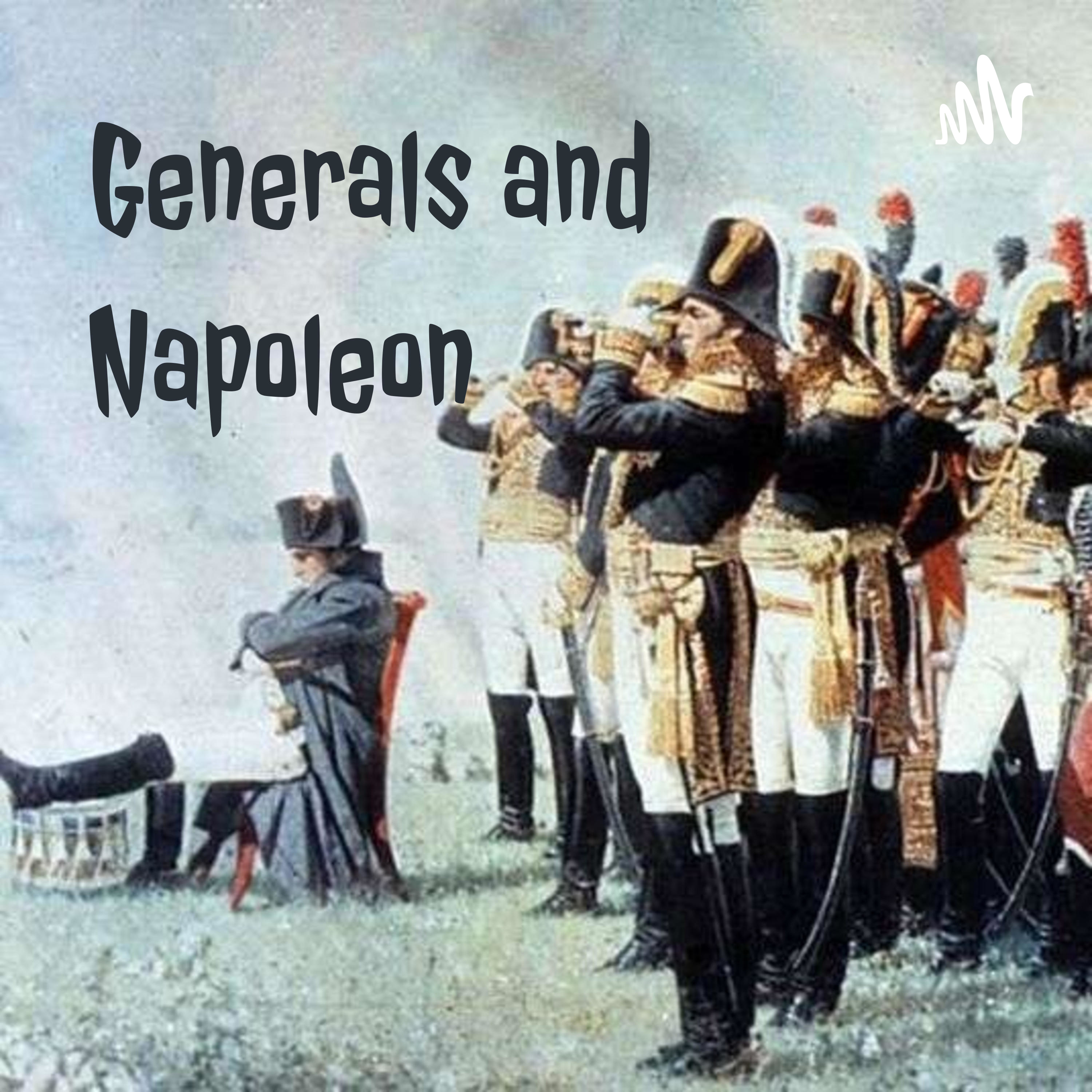
Generals and Napoleon
John W. Viscardo
Shipwrecks and Sea Dogs
Rich Napolitano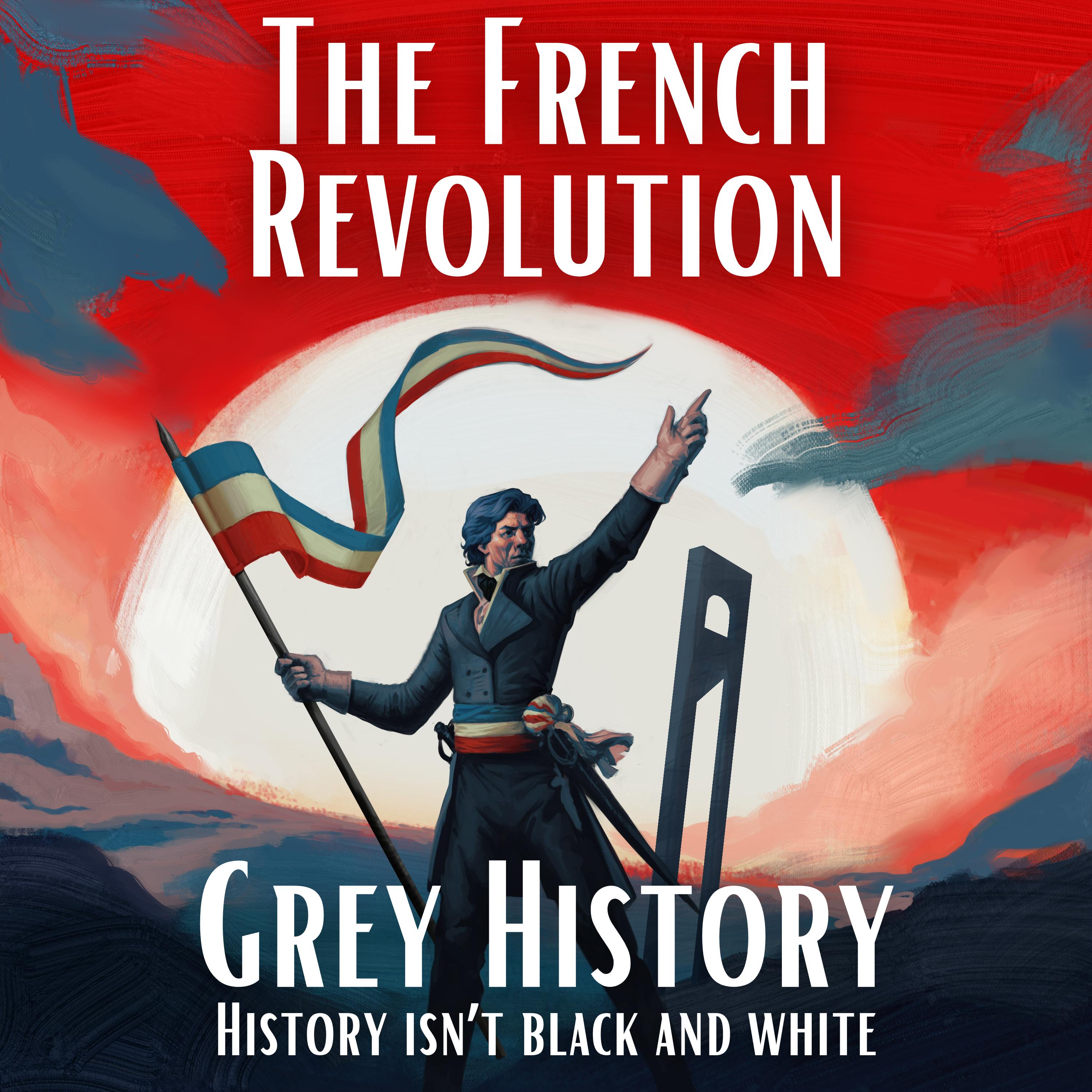
French Revolution & Napoleon (Grey History)
Grey History (William Clark)
The Life and Times of Frederick the Great
Alec Avdakov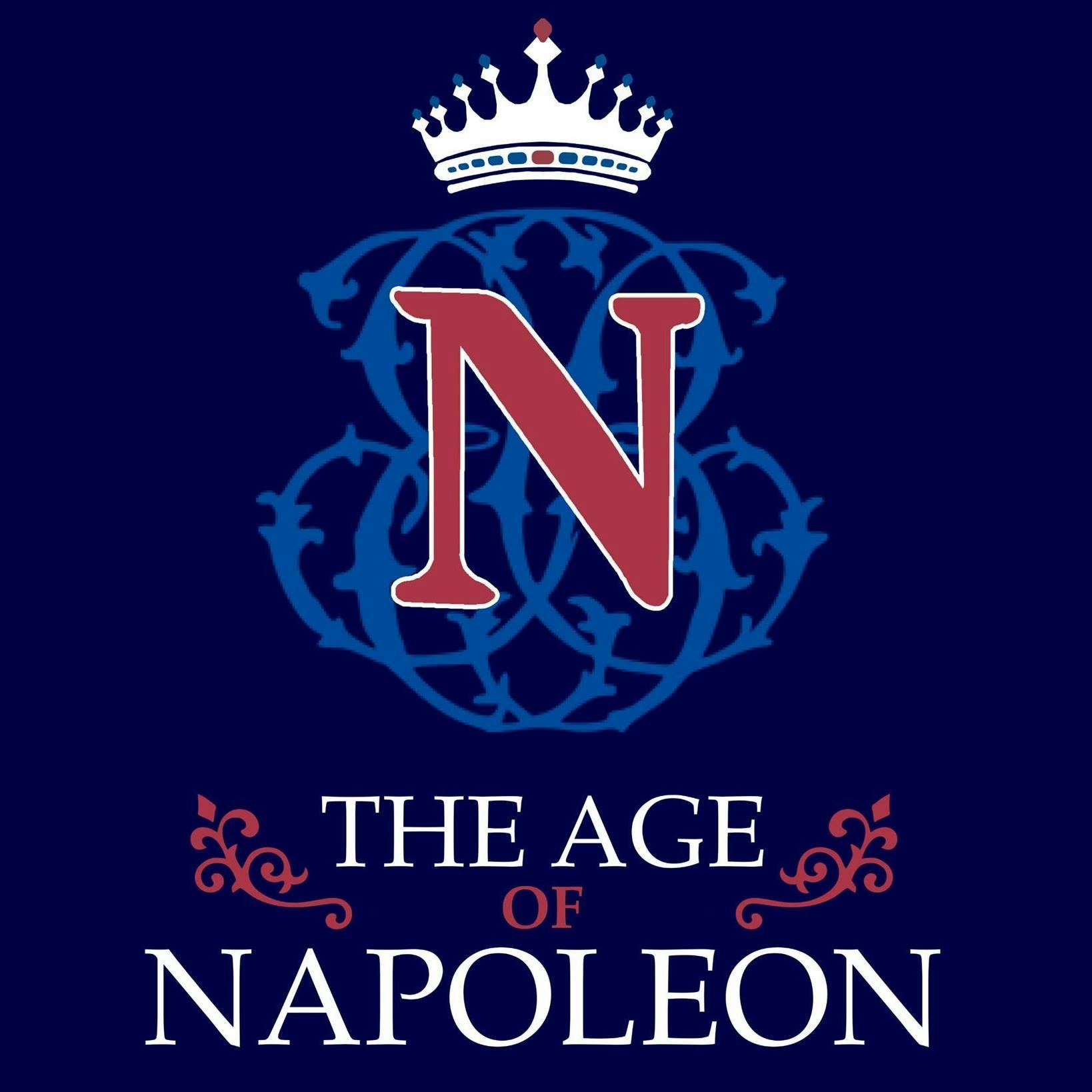
The Age of Napoleon Podcast
Everett Rummage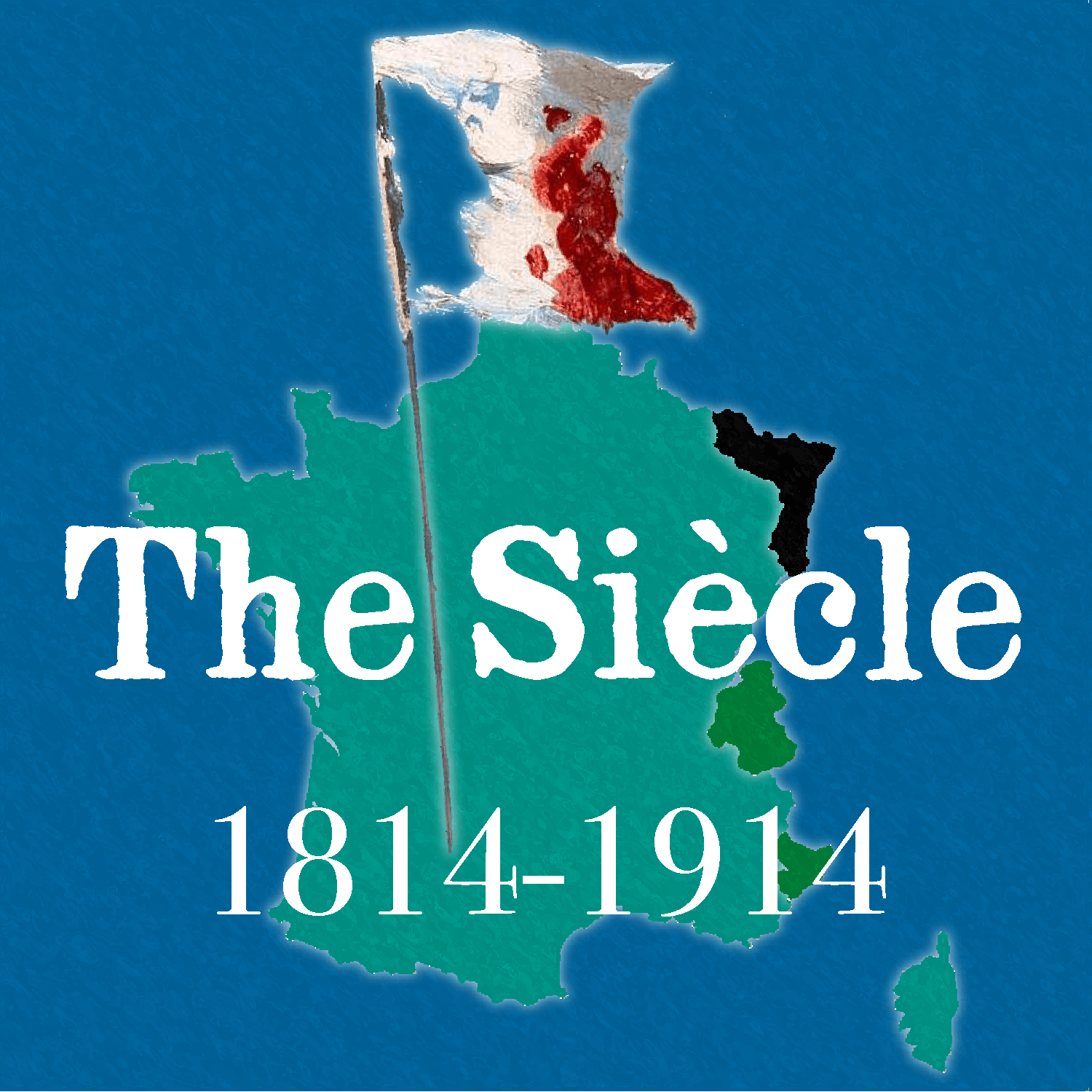
The Siècle History Podcast
Evergreen Podcasts
The Napoleonic Wars Podcast
Zack White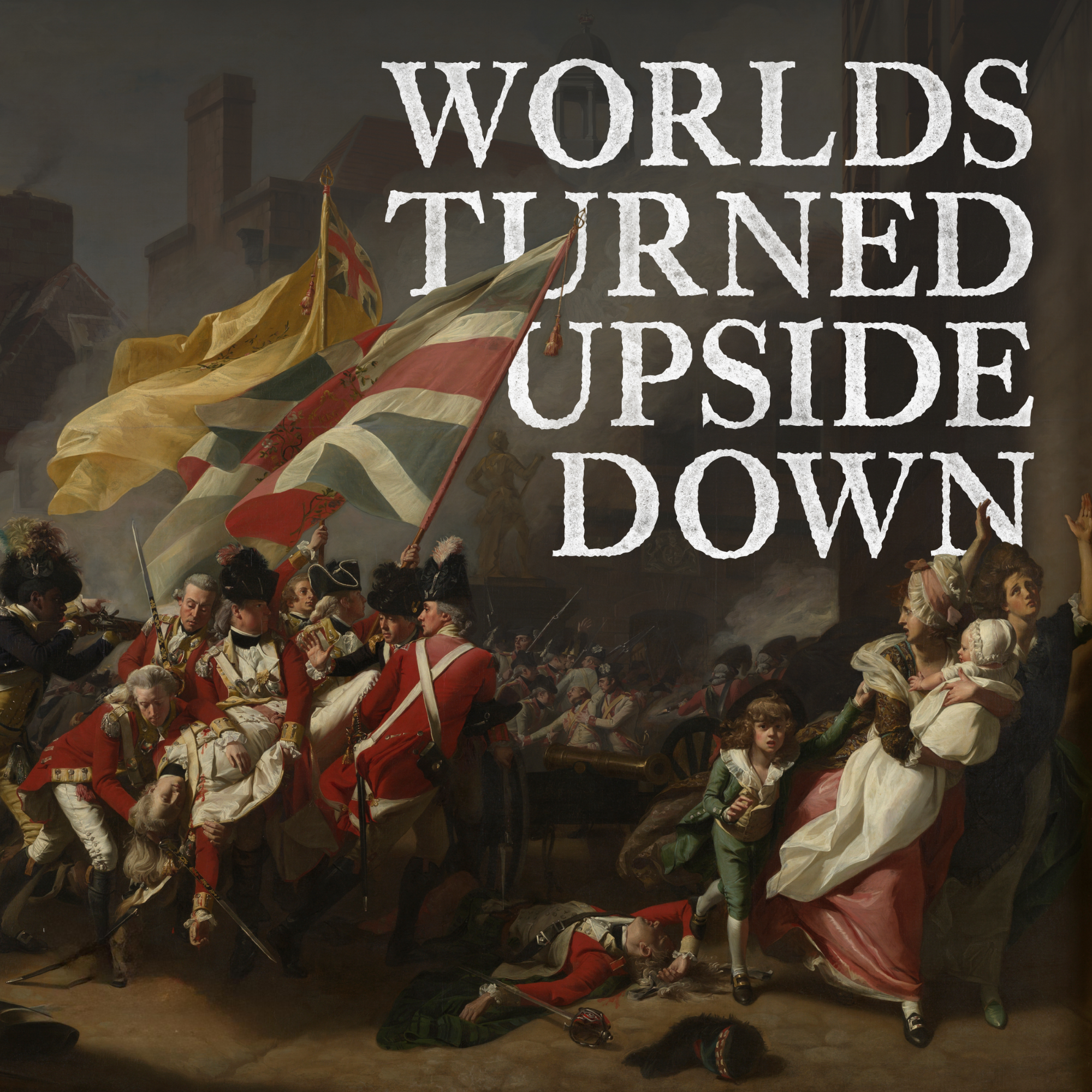
Worlds Turned Upside Down
Roy Rosenzweig Center for History and New Media
Empire-Builders
David Mainayar
Battles of the First World War Podcast
Mike Cunha
New York, Quebec, and The Water Route to the Center of the World
William Matthews
Deep into History
Deep into History
Battle Royale: French Monarchs
Ben Clarke and Eliza Sommers
A History of Japan
Justin Hebert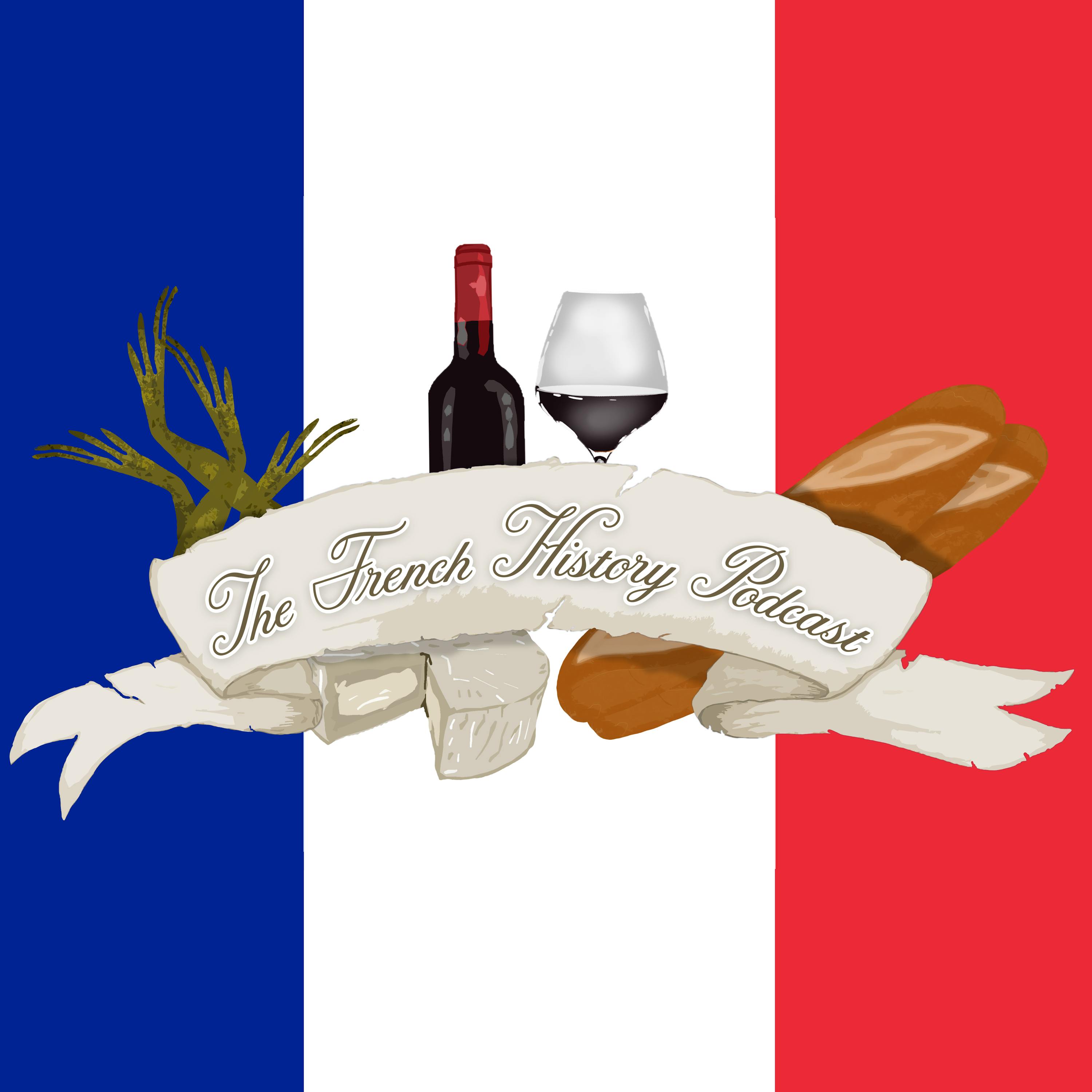
The French History Podcast
Evergreen Podcasts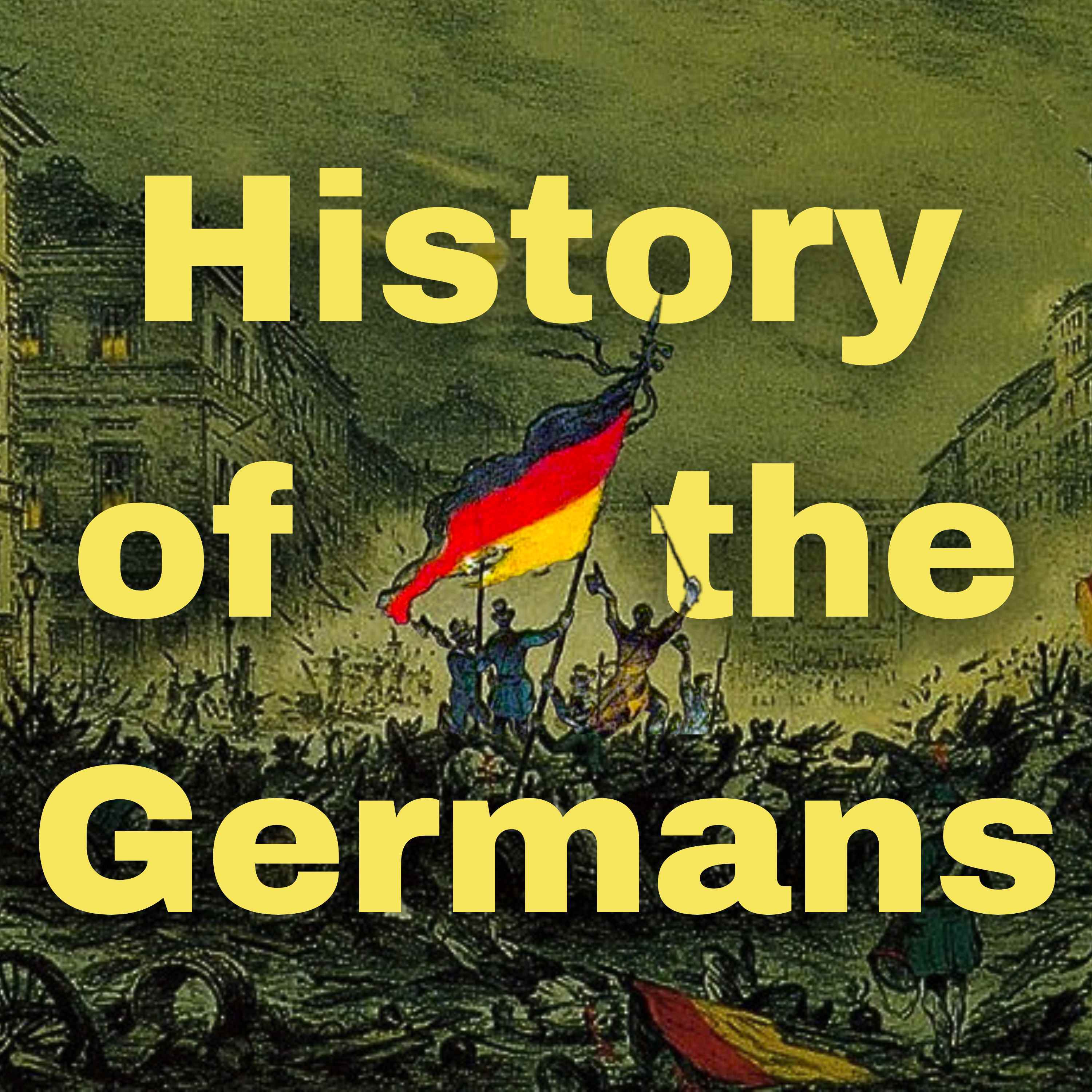
History of the Germans
Dirk Hoffmann-Becking
Half-Arsed History
Riley KnightFrench-Canadian Legacy Podcast
French-Canadian Legacy Podcast
The History of England
David Crowther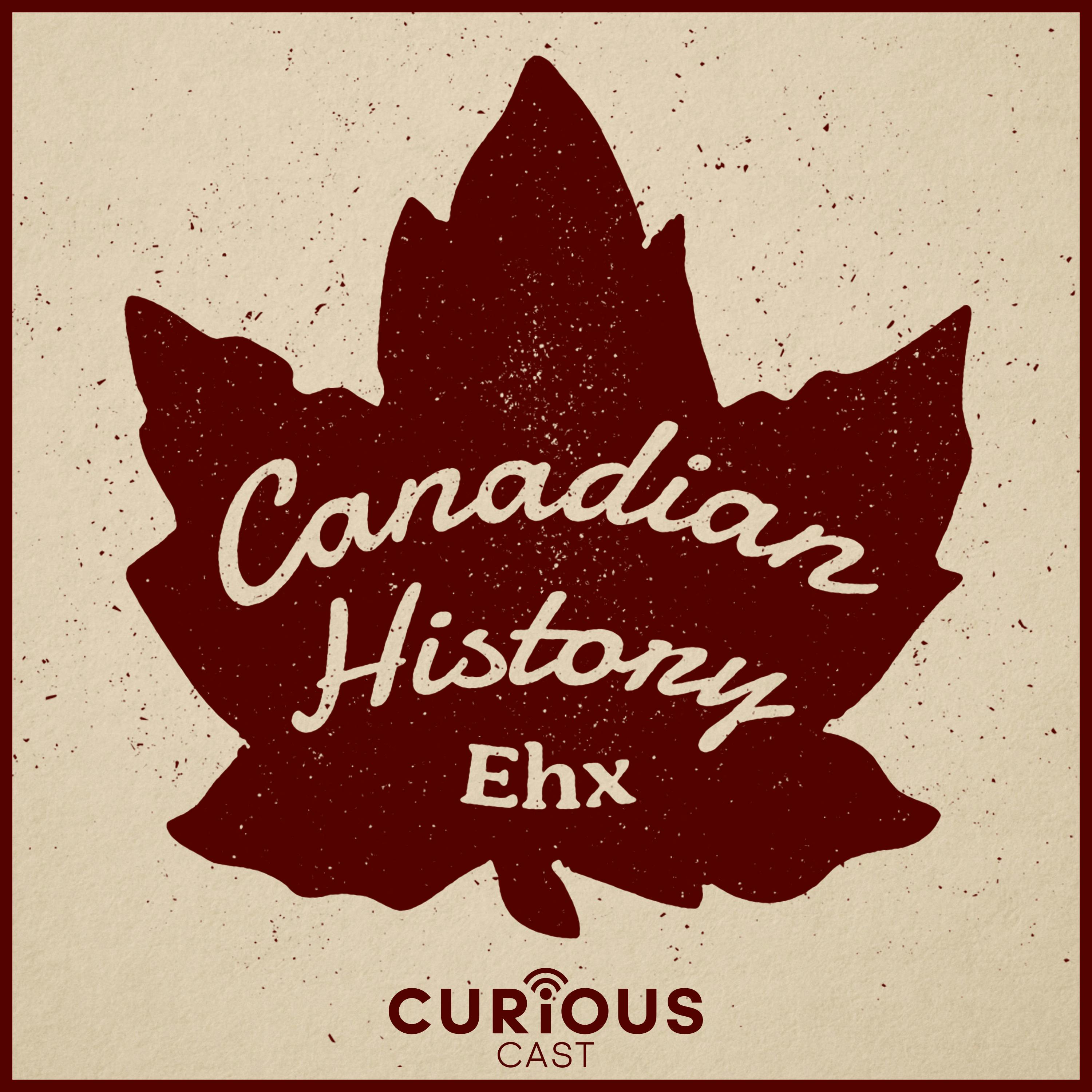
Canadian History Ehx
Craig Baird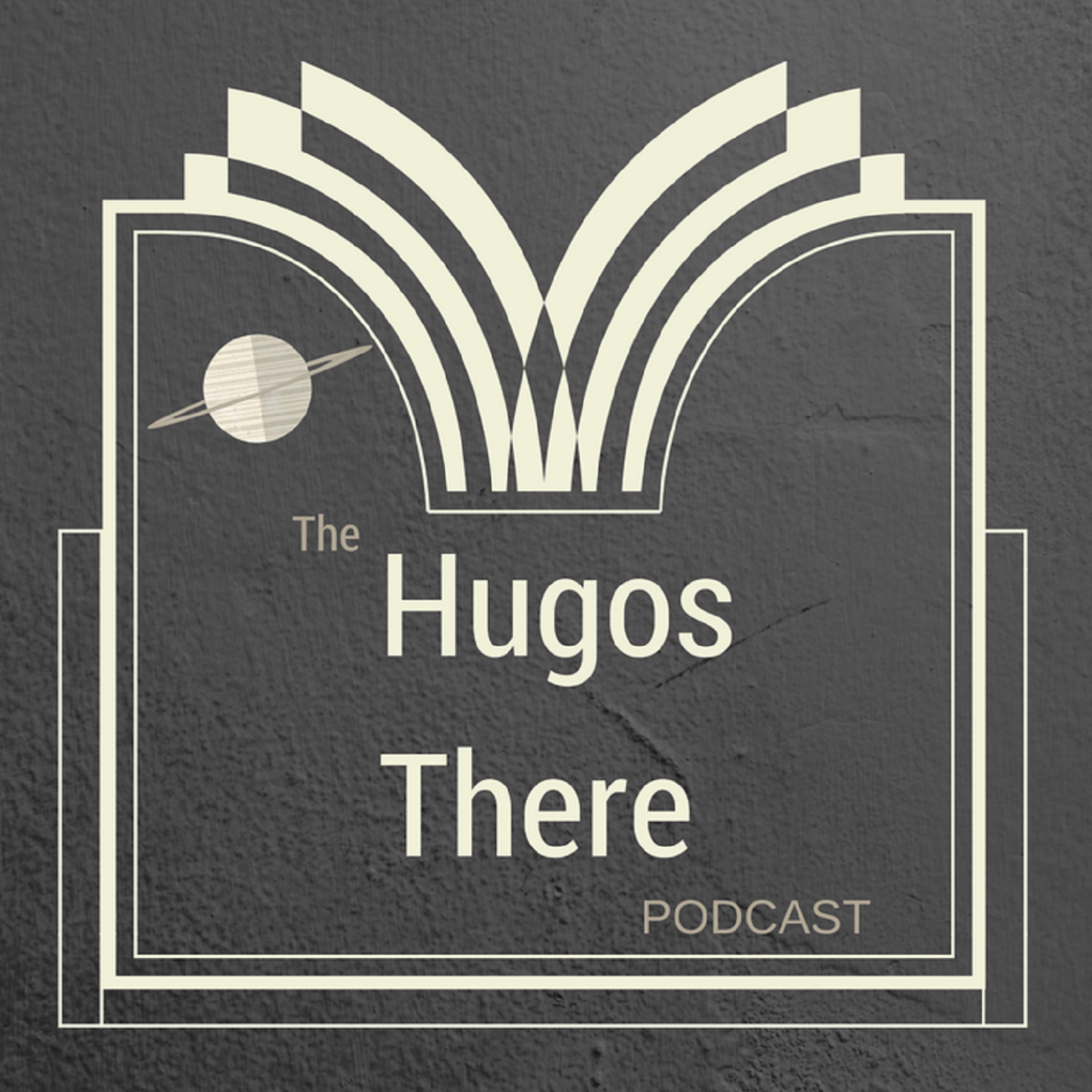
Hugos There Podcast
Hugos There Podcast
Hugo, Girl!
Hugo Girl

